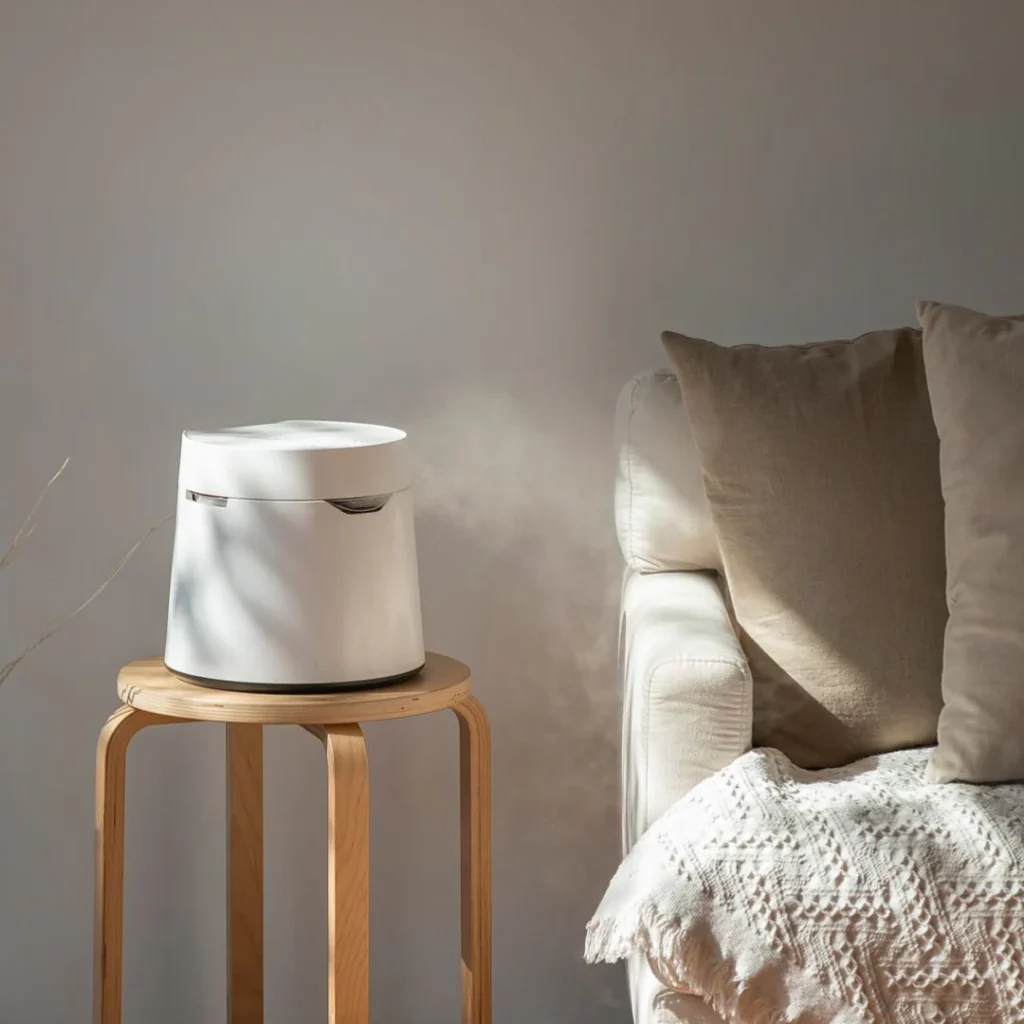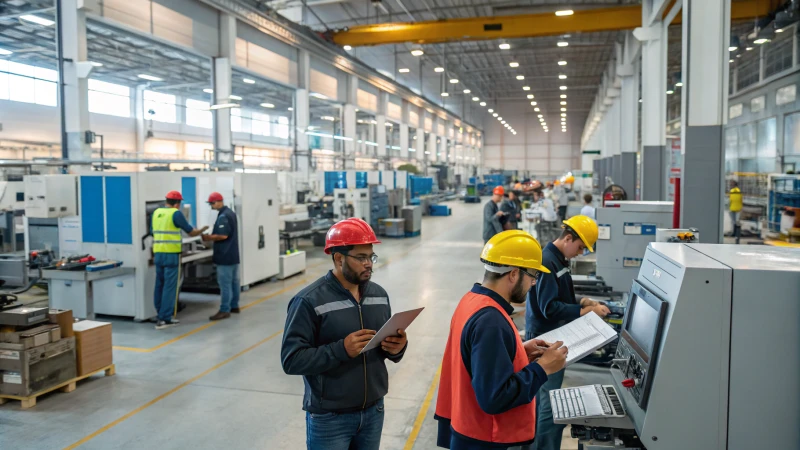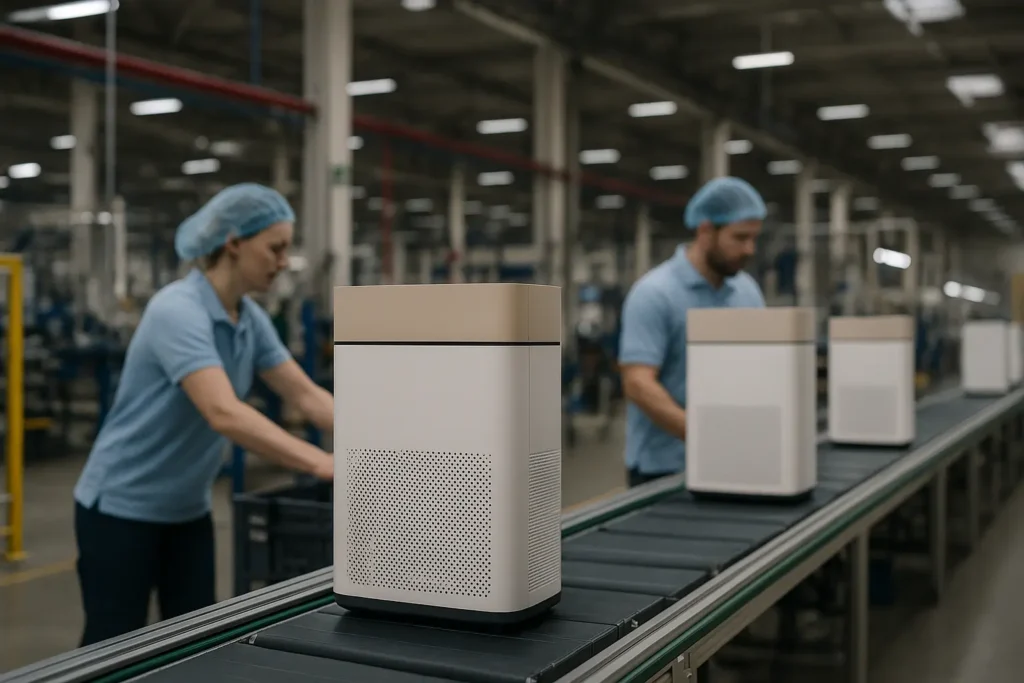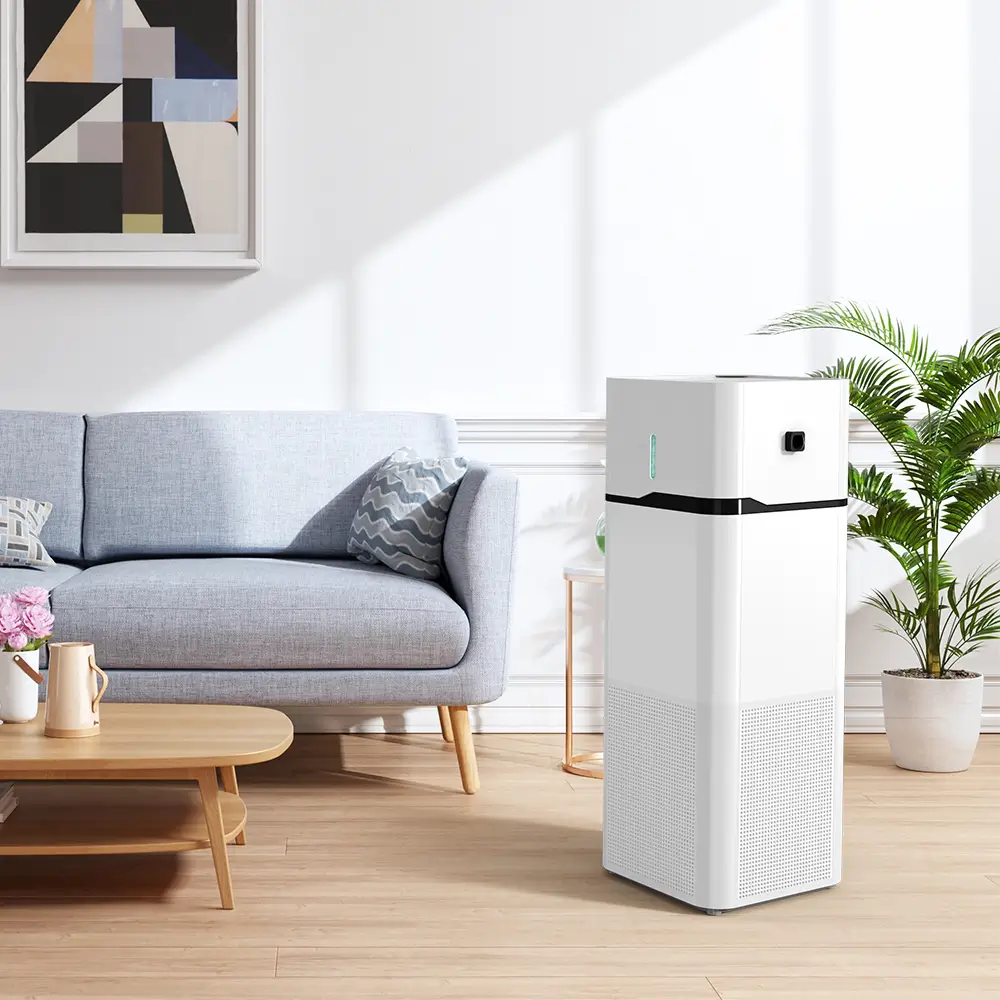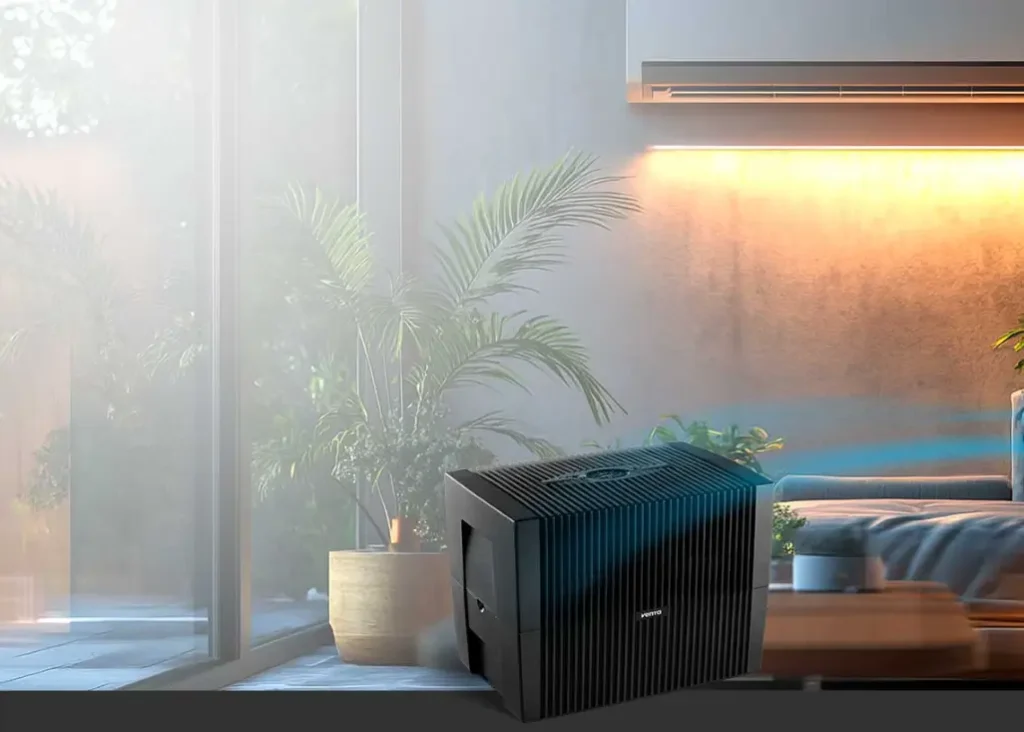Cocinar es una delicia. Pero el desorden, especialmente el olor, que viene después es un poco agotador de eliminar. Afortunadamente, existen métodos eficaces para solucionar este molesto problema.
Muchos piensan que la cocina es el lugar más seguro cuando se trata de malos olores. Al fin y al cabo, es aquí donde se da vida a las suntuosas recetas que hacen la boca agua. Claro que el olor de estos manjares es agradable al principio. Deja que pasen unas horas o unos días y tu nariz dirá lo contrario.
Una vez que aparece el olor, desearías que desapareciera para siempre. Pero, a diferencia de la suciedad y el pelo de las mascotas, los olores no se eliminan simplemente con un paño. Por eso hay que hacer un esfuerzo adicional para eliminarlos por completo.
Afortunadamente, existen métodos sencillos pero eficaces para ello, como el uso de purificadores de aire de alta calidad. Si pone en práctica estas estrategias para eliminar olores, su cocina se convertirá en un lugar agradable, incluso después de una comida al aire libre de una semana de duración.
¿De dónde procede el olor de su cocina?

Fuente de la imagen: Unsplash
Hay que saber que el olor de su cocina tiene un único origen: su cocina.
Cada vez que preparas la comida, el aroma crudo de los ingredientes se libera en el aire. Al principio, no los notarás. Pero tarde o temprano, se acumularán hasta convertirse en un olor acre que no podrás ignorar.
Los platos en el desagüe, las sobras en la mesa y la grasa en los fogones acabarán contribuyendo al mal olor del aire de su cocina. Al mismo tiempo, el triturador de basura también emana su propio olor, sobre todo si no tiras su contenido.
Cuanto más tiempo permita que el olor se perpetúe, más difícil le resultará eliminarlo. Utilizar Purificadores de aire con certificación AHAM podría ayudar con los olores fuertes de la cocina.
¿Es normal el olor a cocina?
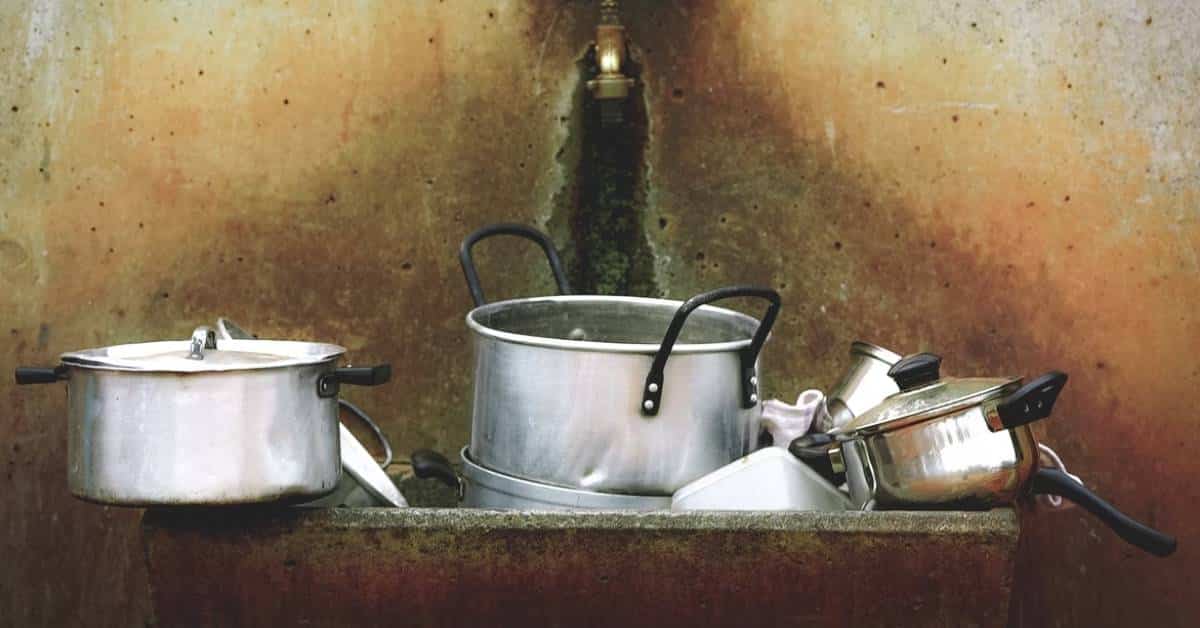
Fuente de la imagen: Unsplash
Por supuesto. El olor que emana de la comida que cocinas es natural y no debe considerarse una amenaza. Eso es bastante absurdo. De hecho, el olor de la comida contribuye a su sabor y aroma. Al fin y al cabo, dicen que los sabores que tu lengua no puede probar los saborea tu nariz.
El olor a cocina se convierte en un problema si se perpetúa sin control. Una vez que se instala y se adhiere a la cocina, resulta difícil eliminarlo. El problema se agrava si el olor sale de la cocina y se propaga por las distintas partes de su casa. Al fin y al cabo, percibir un olor penetrante de cocina en el salón o el dormitorio nunca debe considerarse algo normal.
¿Puede ser peligroso el olor a cocina?
Hay quien piensa que los humos de la cocina son inofensivos. Aunque es cierto en la mayoría de los casos, no hay que tomarse las cosas a la ligera.
Tenga en cuenta que la cocina genera una intrincada mezcla de productos químicos y compuestos. Se dice que algunos de estos residuos son contaminantes insalubres. En concreto, los principales contaminantes del aire relacionados con la cocina son estas partículas.
Partículas en suspensión es el término general que engloba diversas materias microscópicas sólidas y líquidas formadas por varios compuestos. Son la razón misma por la que no querrías inhalar los humos procedentes del tubo de escape de tu coche, ya que pueden agravar los síntomas del asma y las alergias.
Casi toda la cocina libera partículas en forma de carbón y aerosoles. Por ejemplo, un olor a quemado significa que se liberan partículas al aire. Mientras haya una llama, las partículas estarán presentes.
Afortunadamente, al cocinar sólo se liberan pequeñas cantidades de estas partículas. Pero si no se realiza una limpieza adecuada, pueden causar problemas de salud y agravar afecciones ya existentes.
Causas comunes del olor a cocina
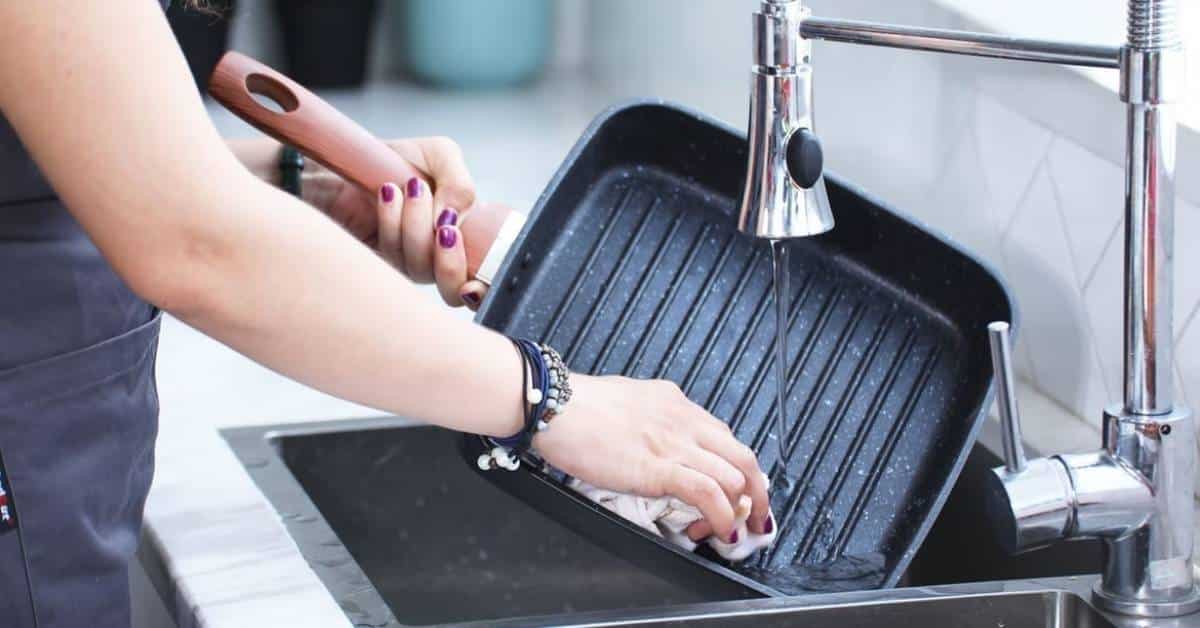
Fuente de la imagen: Unsplash
¿Su cocina huele mal? Existe la posibilidad de que las siguientes fuentes sean las que emanan el olor acre que tu nariz está percibiendo.
Drenaje
Cada vez que vierte aceite y grasa en el fregadero, estos líquidos acaban pegándose al desagüe y a la tubería. Tarde o temprano, la grasa se descompondría y atraparía otros residuos dentro del desagüe. Esta composición causaría un olor a podrido que se difunde eventualmente a la cocina.
Trituradores de basura
También hay que tener en cuenta que los restos de comida, la mugre y otros residuos que van a parar al triturador también provocan olores no deseados. Se pudrirían y producirían un olor desagradable. Este problema se agrava aún más si se introduce agua caliente o si no se deja correr el agua. Si su el triturador de basura ya es viejosu eficacia en el tratamiento de la basura también disminuye.
Trampa
Si el olor de su cocina es bastante parecido al de la comida podrida, es posible que el origen sea el sifón del fregadero. Este último es un tubo en forma de U o de P que se encuentra debajo de la pila del fregadero. Si el olor procede de aquí, es probable que ya esté averiado o que haya alguna cosa que haya quedado atrapada allí.
Cocinas y encimeras
Por supuesto, es muy probable que el mal olor de su cocina proceda de la encimera y los fogones. Al fin y al cabo, son los lugares donde se preparan los alimentos. Suelen estar plagados de aceite, grasa, restos de comida y residuos de carne. Si no se limpian inmediatamente, se pudrirán y producirán un olor no deseado.
¿Por qué es importante purificar el olor a cocina?
Es necesario eliminar el olor que queda después de cocinar para que la cocina se mantenga fresca. Una cocina maloliente no es un buen lugar para crear sus manjares favoritos. Simplemente arruina el "sabor" de su cocina.
Además, es esencial que el olor se disperse lo antes posible. De lo contrario, eliminarlo sería mucho más difícil. Los olores tienden a emanar durante periodos prolongados, sobre todo si no vas a eliminar su fuente. También existe la posibilidad de que el olor se extienda a toda la casa, lo que complicaría las cosas y las haría más molestas.
Purificadores de aire para eliminar el olor a cocina
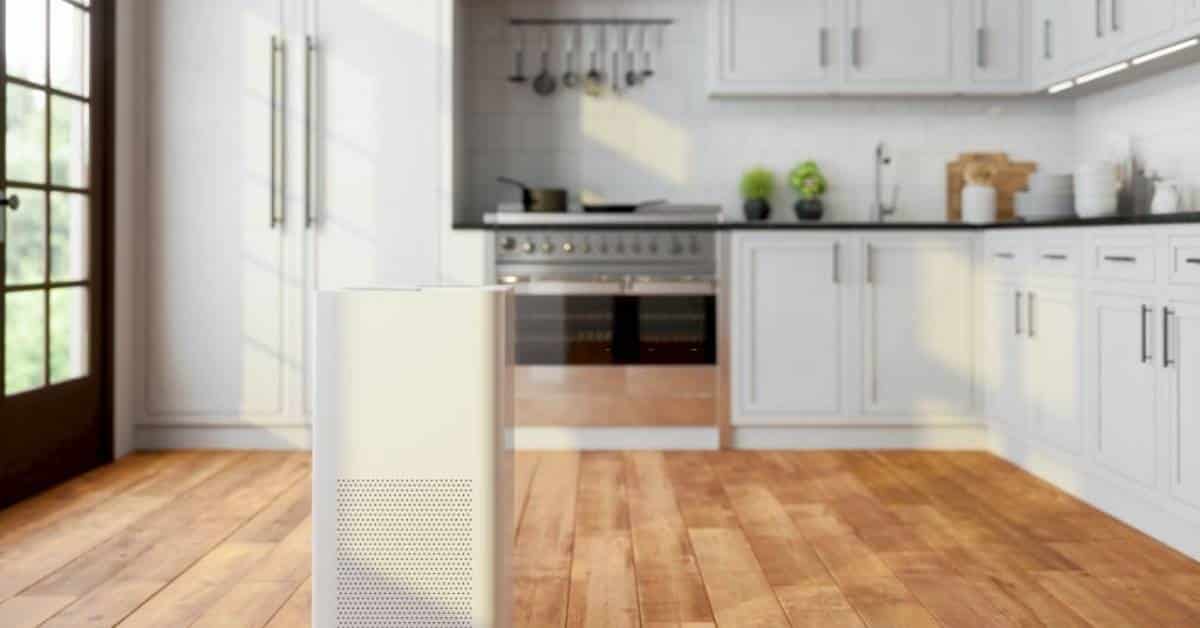
Fuente de la imagen: iStockphoto
¿Cómo eliminar el olor a cocina? La mejor respuesta a esta pregunta es un purificador de aire.
Con este aparato, podrá deshacerse de diversos contaminantes del aire, como el polvo, los agentes patógenos y los alérgenos. Pero muchos no son conscientes de que los purificadores de aire específicos son excepcionalmente impresionantes cuando se trata de eliminar sustancias y productos químicos que causan olores.
Siga leyendo para saber cómo ayudan estos purificadores de aire a eliminar los olores.
¿Por qué es importante un purificador de aire para mejorar la calidad del aire?
La contaminación del aire interior es un problema al que hay que prestar atención. Según diversas autoridades, como el Organización Mundial de la SaludLa contaminación del aire interior tiene efectos más graves que la del exterior. La razón es la concentración de contaminantes en espacios cerrados.
Además, hay numerosas fuentes de contaminantes que podrían irrumpir en tu casa. Y algunas de ellas no proceden del exterior, sino que ya están dentro de tu casa, impregnando diversas cosas que contaminan el aire que respiras. Por ejemplo, los alimentos con olores fuertes pueden contaminar tu aire con olores no deseados. Esto dificulta mucho la respiración del aire interior.
Los purificadores de aire están diseñados para solucionar los problemas de contaminación del aire interior. Estos dispositivos pueden capturar diferentes cuerpos extraños que reducen la calidad del aire de sus hogares y edificios.
Purificador de aire para el olor a cocina
Como ya se ha mencionado, los purificadores de aire son capaces de eliminar los elementos que causan olores en el aire . Y eso incluye el olor generado por los alimentos que cocinas en la cocina.
De hecho, se recomienda la presencia de un purificador de aire en las cocinas. Mientras este dispositivo esté presente en su asilo que cocina, usted nunca tendrá que preocuparse de olores del alimento más. Y la mejor parte sobre esto es que usted don' t necesita funcionar estos purificadores del aire todo el tiempo. Usted va solamente a necesitarlos durante y después de hacer comidas y manjares.
¿Son seguros los purificadores de aire para olores de cocina?
Sí. Los purificadores de aire son seguros ya que no generan emisiones nocivas. Sólo utilizan filtros para capturar los contaminantes del aire, los productos químicos y los COV.
Sin embargo, hay que tener cuidado con los generadores de ozono. Los generadores de ozono son variantes de los purificadores de aire basados en filtros. En lugar de filtros, generan ozono para "neutralizar" las partículas del aire.
Aunque el concepto parece noble, hay que tener en cuenta que el ozono es un irritante pulmonar. La exposición a este compuesto gaseoso podría desencadenar enfermedades respiratorias. Además, no hay ningún estudio que demuestre que los generadores de ozono son eficaces para eliminar los olores en interiores.
¿Cómo funcionan los purificadores de aire para eliminar el olor a cocina?
El proceso es bastante sencillo. Los purificadores de aire tienen un medio de filtración llamado filtro de carbón activado.
Este filtro no captura la suciedad y los contaminantes microscópicos, como lo hacen los filtros HEPA. En su lugar, implementa el proceso de adsorción para capturar las sustancias, compuestos y productos químicos en su cuerpo. Es un procedimiento esencial que ayuda a eliminar los olores en el aire.
Por ello, es esencial que el purificador de aire que adquiera tenga un filtro de carbón activado. Sin este filtro, nunca podrá deshacerse del mal olor que persiste en su cocina.
Eliminar el Olor a Cocina con Purificadores de Aire: Paso a Paso
Como se ha mencionado, el proceso de eliminación del olor en interiores implica principalmente estos filtros de carbón. Este es el procedimiento específico para eliminar el olor a comida del aire.
- El purificador de aire utiliza su ventilador para aspirar el aire hacia su interior.
- Una vez que el aire pasa por su entrada, pasará por los filtros. Lo más probable es que pase primero por el prefiltro antes de pasar al filtro HEPA y al filtro de carbón.
- Cuando el aire llega al filtro de carbón, todas las sustancias causantes del olor quedan atrapadas en su superficie porosa.
- El aire sale del aparato y se difunde de nuevo en la habitación
Este proceso se repite hasta que deja de haber contaminantes en el aire.
¿Cuánto tarda en desaparecer el olor a cocina después de la eliminación?
No se necesita demasiado tiempo para que el purificador de aire elimine el olor acre del aire. Por supuesto, este asunto también depende de la calidad de su purificador de aire. Tenga en cuenta que no todos los purificadores de aire son iguales. Por lo tanto, algunos pueden producir mejores efectos que otros.
Ésta es también la misma razón por la que usted necesita ser prudente cuando viene a elegir un purificador del aire para su cocina. Dimos un breve sobre esto en la sección siguiente.
Cosas a considerar al comprar un purificador de aire para el olor a cocina
No es tan difícil elegir el purificador de aire ideal para usted. Simplemente tiene que identificar sus necesidades y requisitos para que pueda llegar a la mejor opción para usted.
Para la eliminación de olores, debe tener en cuenta los siguientes factores:
- Tamaño de la habitación - Antes de comprar un purificador de aire, debe determinar el tamaño de su cocina. En la medida de lo posible, el purificador de aire que adquiera debe poder cubrir los metros cuadrados de su cocina. Por ejemplo, si el área tiene un tamaño de 200 pies cuadrados, el purificador de aire que necesita debe tener un alcance efectivo de al menos 200 pies cuadrados. Cuanto mayor sea la cobertura, mejor.
- Calidad del ventilador - El purificador de aire que usted debe conseguir debe poseer un flujo de aire óptimo. De este modo, podrá captar el aire de forma eficaz, sin que falte ni un punto. Al mismo tiempo, el purificador de aire debe tener un potente ventilador que distribuya uniformemente el aire que limpia por toda la habitación.
- Filtro de carbón activado - Es esencial que el purificador de aire disponga de este tipo de filtro. Sin este filtro, la eliminación de olores es bastante imposible. Los filtros de carbón activado varían en tamaño y forma. Por lo tanto, debe elegir un purificador de aire que ofrezca una protección garantizada contra los COV, los productos químicos y las sustancias gaseosas. En la mayoría de los casos, son los que generan olores.
- Filtro HEPA - También es importante que el purificador de aire tenga un filtro HEPA eficaz. Después de todo, cocinar produce partículas que podrían desencadenar sus alergias y otras enfermedades respiratorias. Sólo los filtros HEPA pueden capturar estas partículas, ya que son de tamaño microscópico.
Los mejores purificadores de aire para eliminar el olor a cocina
Los siguientes son algunos de los purificadores de aire más notables para eliminar el olor acre procedente de los alimentos que cocina. Debería comprobar primero estos purificadores de aire antes de buscar otras opciones:
| Cobertura | Tipos de filtros | |
| HisoAir Modelo HA-1968 | 1.937 pies cuadrados | Filtro HEPA, filtro de carbón activado, prefiltro, luz UVC |
| HisoAir Modelo HA-1601 | 1011 pies cuadrados | Filtro HEPA, filtro de carbón activado, prefiltro, luz UVC |
| HisoAir Modelo HA-W400 | 538 pies cuadrados | Filtro HEPA, filtro de carbón activado, prefiltro, luz UVC |
1. HisoAir Modelo HA-1968
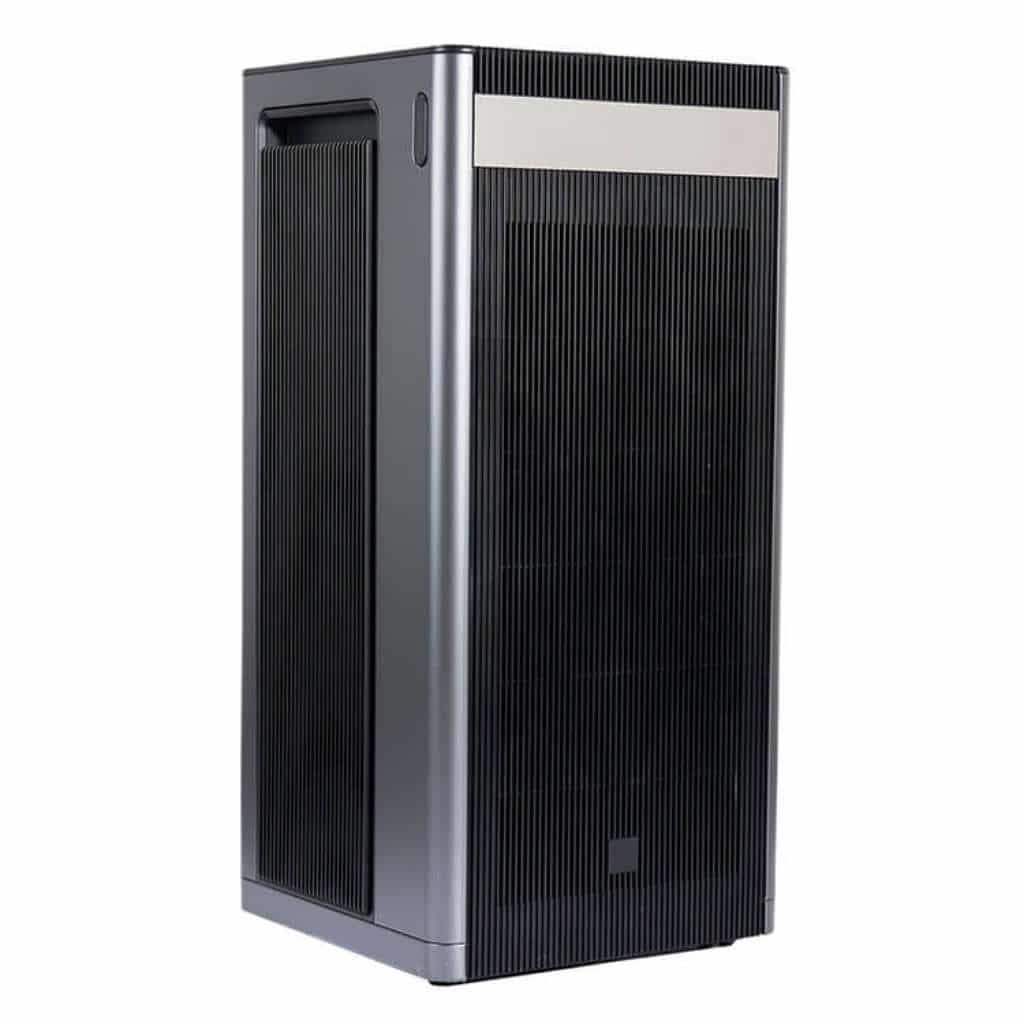
Fuente de la imagen: HisoAir
Para deshacerse del olor a cocina en su cocina, puede que necesite invertir en el modelo HA-1968 de HisoAir. Este purificador de aire en particular es bastante eficaz cuando se trata de olores causados por alimentos, productos químicos y otras sustancias. Es debido a la presencia de un filtro de carbón innovador en su sistema. El filtro dicho atrapa los elementos olor-que causan, asegurándose de que no le molestarán en todos.
Al mismo tiempo, el modelo HA-1968 de HisoAir está diseñado para trabajar en grandes espacios. Puede cubrir áreas de hasta 1.900 pies cuadrados, lo que indica que puede realizar la purificación del aire interior de toda la casa. También tiene filtros resistentes y eficaces. Su filtro HEPA, por ejemplo, es muy eficaz contra las amenazas bacterianas y virales. Es una de las razones por las que este purificador de aire se utiliza en entornos comerciales e industriales.
| PROS | CONS |
|
|
2. HisoAir Modelo HA-1601
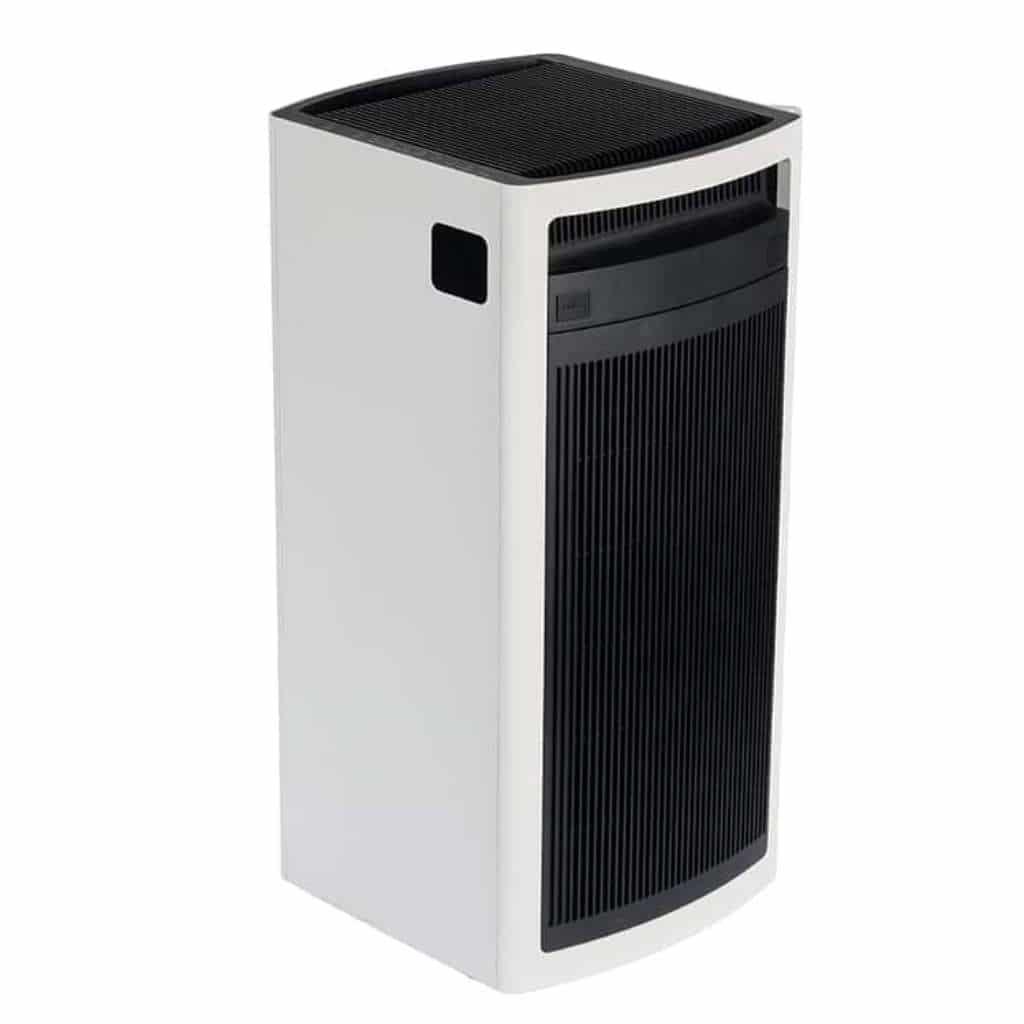
Fuente de la imagen: HisoAir
El modelo HA-1601 de HisoAir también es un purificador de aire excepcional, especialmente si busca un medio eficaz para mantener fresca su cocina. Con el filtro de carbón activado de este purificador de aire, se eliminarían del aire varios elementos causantes de olores. Además, cuenta con un potente ventilador y un motor que le permiten absorber grandes cantidades de aire al mismo tiempo.
Debido a esta cualidad, el modelo HA-1601 de HisoAir está pensado normalmente para áreas que requieren una purificación del aire extensa. Esto significa que puede utilizar este purificador de aire para espacios amplios. Por ejemplo, si su cocina es espaciosa, este purificador de aire es el purificador de aire ideal para usted. Aparte de su filtro de carbón, este aparato también está equipado con un filtro HEPA, un prefiltro y una luz UVC. Esto permite a este purificador de aire llevar a cabo una filtración completa del aire.
| PROS | CONS |
|
|
3. HisoAir Modelo HA-W400
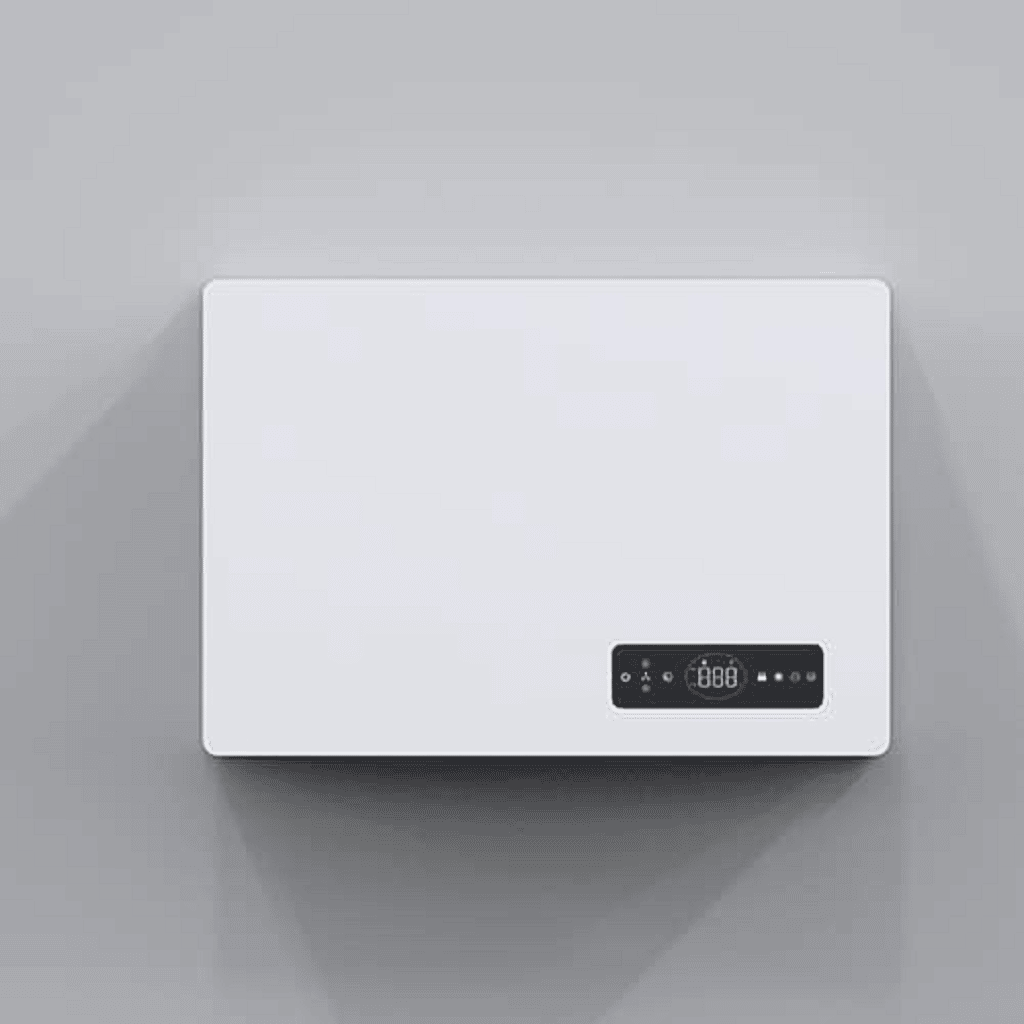
Fuente de la imagen: HisoAir
También puede optar por el modelo HA-W400 de HisoAir como purificador de aire para su cocina. Este purificador de aire montado en la pared está diseñado para funcionar en aplicaciones de una sola habitación. A diferencia de otros purificadores de aire HisoAir, este dispositivo sólo está diseñado para espacios pequeños y medianos. En concreto, su alcance máximo efectivo es de unos 538 pies cuadrados. Pero definitivamente, puede acomodarse a la mayoría de las cocinas domésticas.
Este purificador de aire proporciona una circulación de aire óptima. Absorbe el aire de manera eficiente para que pueda gravitar hacia sus filtros. De este modo, se garantiza una mejora de la calidad del aire interior. Si su problema es el mal olor, este purificador de aire sin duda puede ayudarle. Gracias a su filtro de carbono, no se escapan las sustancias que causan olores, los productos químicos y los compuestos orgánicos volátiles. Incluso puede neutralizar el olor de la cocina.
| PROS | CONS |
|
|
¿Cómo evitar el olor a cocina después de la extracción?
Le gustaría que su cocina estuviera lo más impecable y libre de olores posible. Así que, además de limpiar, puede seguir los siguientes consejos para prevenir los malos olores:
Pon limones en el triturador de basura - La mayoría de las veces, el olor de tu cocina procede del cubo de la basura. Al fin y al cabo, aquí es donde se depositan todas las cosas no deseadas. Esta mezcla acabaría generando olor. Para evitar que esto ocurra, corta cáscaras de limón en rodajas y ponlas en el cubo de la basura. Pueden ayudar a reducir el olor fétido que allí emana. El ácido cítrico es eficaz para romper la grasa y la mugre.
- Seca tus esponjas - En serio, las esponjas mojadas pueden ser bastante molestas, sobre todo porque son susceptibles de volverse apestosas. Una vez que las bacterias crecen en sus esponjas, un olor fétido comenzará a emitir. Para evitarlo, exprímelas después de usarlas. Al mismo tiempo, debes guardarlas en una zona con buena circulación de aire para que se sequen de forma natural.
- Al vapor - Este truco es eficaz para evitar los olores posteriores a la cocción. Después de preparar algo picante, acerque un cazo al fuego y llénelo con al menos una taza de agua. Mézclala con tres cucharadas de vinagre blanco. Hierve la mezcla durante varios minutos hasta que salga vapor. El vapor que incluye el vinagre es eficaz para neutralizar los malos olores.
- Utilice su extractor de aire - Por supuesto, un extractor es el medio más inmediato para evitar el olor de la cocina. Cada vez que estés cocinando, asegúrate de que está en marcha. Expulsará el humo y evitará que se impregne el olor. De este modo, su cocina mantendrá un aire limpio y respirable.
Otras formas de eliminar el olor a cocina en casa
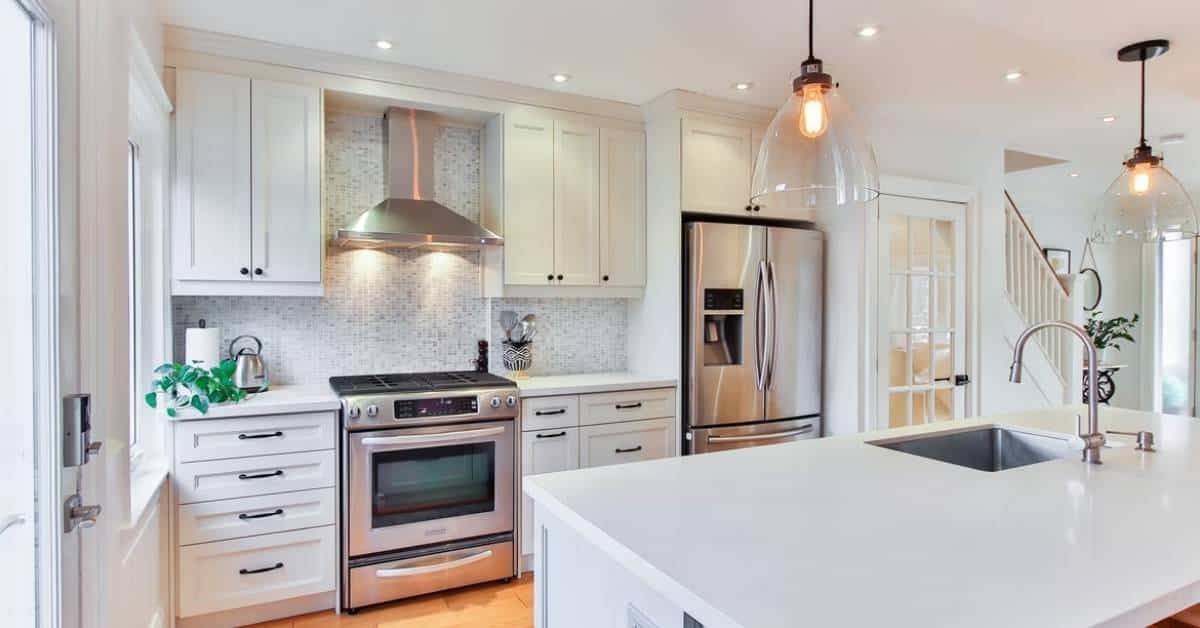
Fuente de la imagen: Unsplash
Siempre es probable que la comida que entra en su cocina se difunda por toda la casa. E independientemente de lo sabrosas que sean sus comidas, su aroma posterior puede no ser tan acogedor para la nariz.
Aparte de tener un purificador de aire, los siguientes métodos deberían ser capaces de ayudarle a lidiar con el olor de la cocina:
Abrir las ventanas
Una de las mejores formas de eliminar el olor a cocina es sacarlos al exterior. El truco es muy sencillo. Basta con abrir las ventanas de la cocina para que el aire salga al exterior.
También puedes abrir las ventanas de otras partes de tu casa si el olor llega hasta allí. Pero asegúrate de limitar el tiempo que vas a abrir las ventanas. Puedes tenerlas abiertas 30 minutos como máximo. De este modo, no estarás invitando a los contaminantes del exterior, como el polen, el moho y la combustión de los vehículos.
Si vives en un lugar bastante contaminado, lo mejor es que no abras las ventanas. Utiliza un purificador de aire y el olor desaparecerá.
Limpie la cocina con regularidad
La limpieza de su cocina puede ayudar a minimizar cualquier olor fétido. Después de preparar la comida o de tomar tus alimentos, es esencial que hagas la limpieza adecuada.
Por ejemplo, lava las salpicaduras que se quedan pegadas en la encimera y los fogones. No olvides lavar las sartenes, sobre todo si acumulan residuos excesivos como grasa.
No retrases la limpieza. Si esperas toda la noche, el olor de las sobras y del desorden de la cocina se extenderá por toda la casa. Tampoco olvides retirar los restos de comida del fregadero. Vacía el cubo de la basura y asegúrate de eliminarlos correctamente para evitar el olor.
Utilice un tazón de bicarbonato de sodio y vinagre
Algunos olores pueden ser bastante obstinados. Eso está claro. Afortunadamente, su eliminación no es imposible, y en realidad no necesitas hacer nada drástico en este caso.
Puede neutralizar el mal olor en el aire dejando un bol lleno de bicarbonato y vinagre. Coloque el recipiente en la zona donde el olor es más fuerte. Por ejemplo, si el olor procede del fregadero de la cocina, coloque el recipiente cerca de esa zona.
Deja el bol toda la noche para que el vinagre o el bicarbonato absorban el mal olor producido por la comida que has preparado. Puedes repetir este proceso para evitar que vuelva a salir cualquier olor.
Sea un amante del café
Tener una cocina maloliente puede ser una excusa para ser un amante del café. Suena ridículo, ¿verdad? Pero hay una ciencia detrás de ello.
En concreto, lo que buscamos aquí son los posos usados. Al fin y al cabo, el café es rico en nitrógeno, que neutraliza eficazmente los malos olores. Lo que hay que hacer es humedecer los posos de café y extenderlos sobre una bandeja de horno. Déjalo toda la noche para que el poso de café absorba los olores persistentes.
Conclusión
Aquí hemos visto varios métodos para eliminar el mal olor de su cocina. A través de estas estrategias probadas y comprobadas, liberará su cocina del olor generado por los alimentos preparados y consumidos.
Entre las soluciones que enumeramos aquí, los purificadores de aire se consideran los más eficaces. Estos aparatos pueden absorber eficazmente los malos olores del aire gracias a sus filtros de carbono. Cuando se trata de purificadores de aire, HisoAir es una marca en la que puede confiar. Es un fabricante de purificadores de aire de grado médico utilizados en aplicaciones comerciales y residenciales. Visite HisoAir e infórmese sobre sus disposiciones.
Consulte nuestros otros blogs informativos:
- 5 formas eficaces de eliminar las alergias a los gatos de forma natural
- Deshacerse del olor a hierba: 5 maneras probadas de intentarlo
- Cómo eliminar el formaldehído en los hogares: 5 métodos fáciles que funcionan



